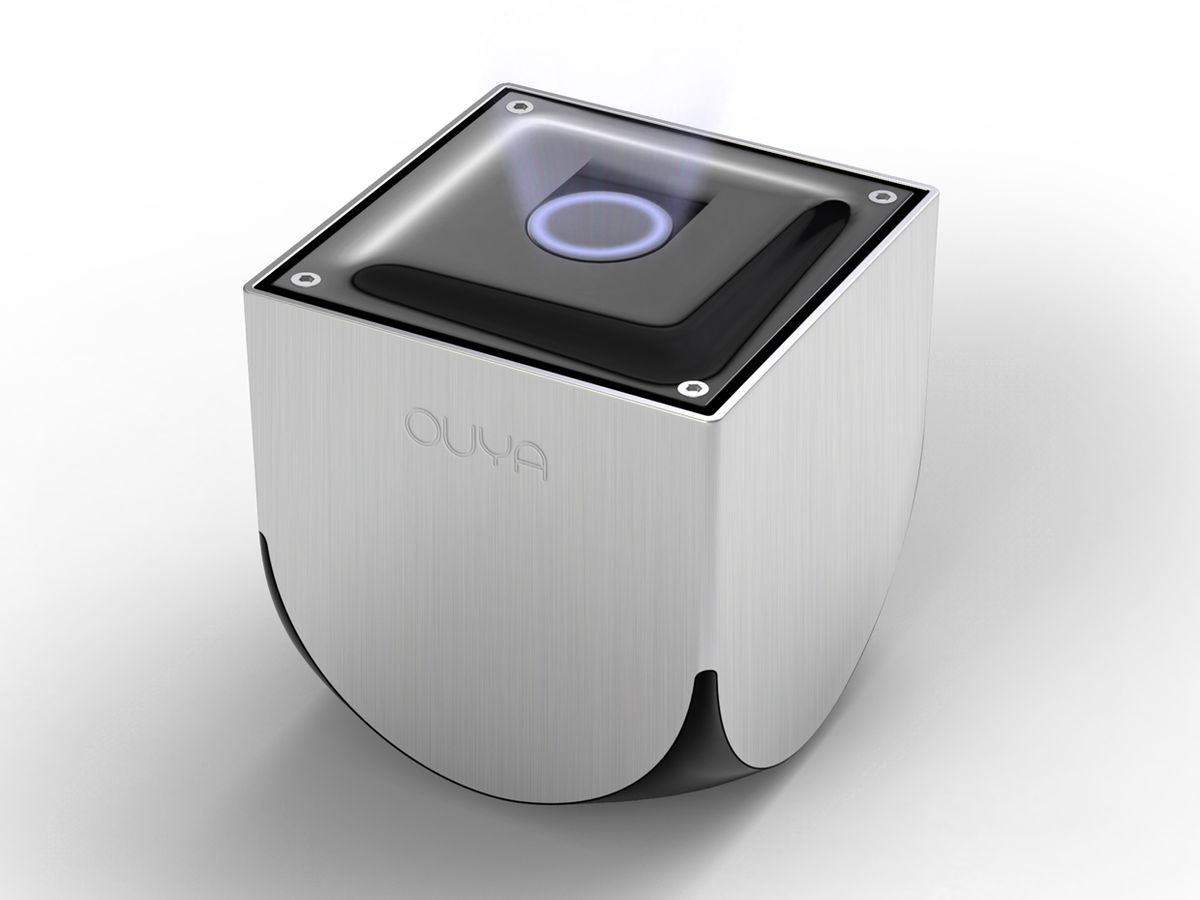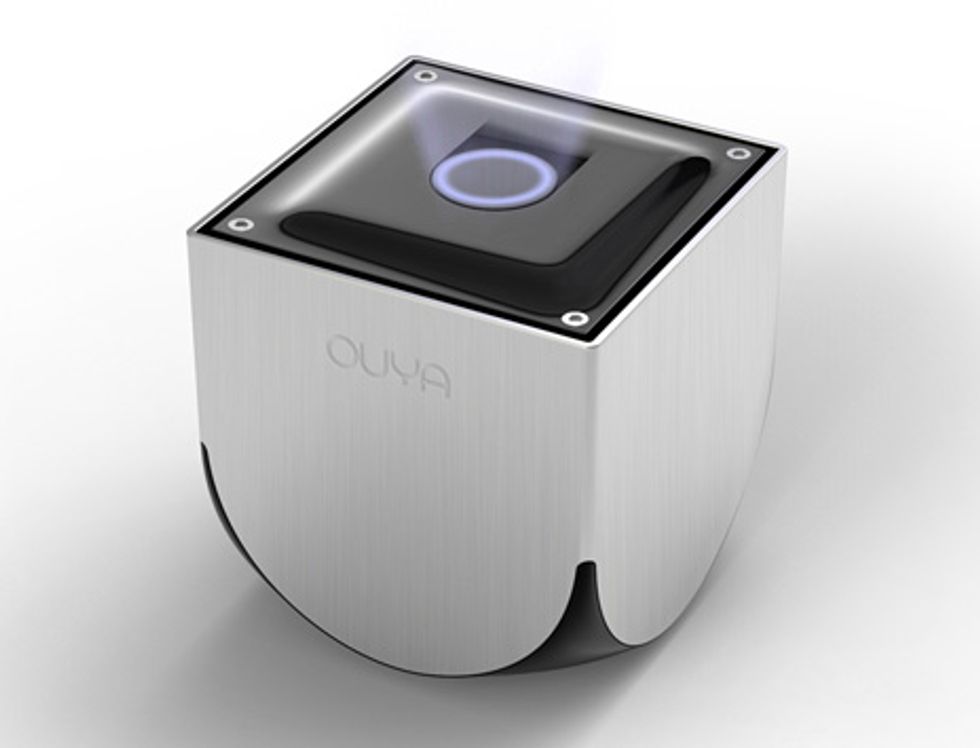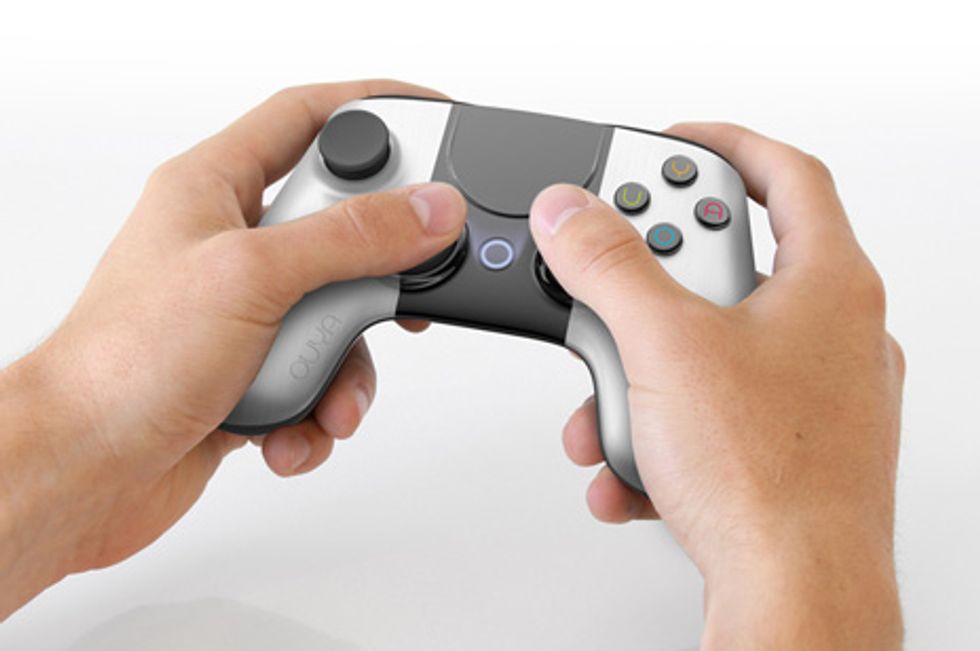Editor’s note: This is one in a continuing series of profiles of notable start-ups.
Video game consoles are dying—and not in cheerfully animated explosions that allow restarts at the twitch of a button. Consoles like Sony’s PlayStation, Nintendo’s Wii, and Microsoft’s Xbox once ruled the game universe. Now people are increasingly playing games on websites like Facebook or on mobile devices like smartphones. According to the research firm NPD Group, retail sales of video games declined for the ninth straight month in August, with 39 percent fewer consoles being sold than by the same time in 2011. This year, 12 million console gamers have hung up their joysticks for good.
OUYA
Founded: 2012
Headquarters: Los Angeles
Founder: Julie Uhrman
Employees: Not disclosed
Funding: US $8.6 million via Kickstarter, plus seed funding from friends and family
A Los Angeles–based start-up called Ouya is hoping to give the gaming industry a bonus life with a US $99 console it expects to start shipping next March. The console, also called Ouya, aims to be everything that existing consoles are not: cheap to buy, free to play, and easy to write games for. A campaign on the crowd-funding website Kickstarter last July struck a chord, with more than 63 000 gamers donating over $8.6 million toward the console’s development, nearly 10 times the amount the company originally asked for.
“People are moving away from the television to play on mobile and Web platforms,” says Julie Uhrman, founder and CEO of Ouya. “I’ve been trying to figure out how to get them back.”
To release a game for today’s consoles, developers have to commit to expensive licensing agreements with Sony, Nintendo, or Microsoft. Writing games for the Web or Android-based smartphones and tablets requires no fee up front, while getting developer access to Apple’s iPhones and iPads typically costs just $99 a year. Ouya, based on Android, will be an open platform for anyone to write for, with one proviso—that games are free to play, at least to begin with.
Android appeals to a large community of developers who have already built games for the mobile market. “We’ve been contacted by more than 1000 developers eager to build for Ouya,” says Uhrman. “Some will build games exclusively for us.”
Developers will make money through the “freemium” model, in which the basic game is free but extras, such as additional levels or desirable virtual items, are not. This model has worked well for Web and mobile games, especially in the so-called casual games category—simple, swift-to-play games designed for Web browsers or the small touch screens of mobile devices. Such games can be surprisingly profitable: NPD has found that 40 percent of freemium players have paid to upgrade or extend game play.
Ouya aims to take these casual gamers to the next level by adding the excitement of playing on a large high-definition TV using stylish wireless controllers festooned with a touch pad, buttons, and dual joysticks. The console uses a Tegra 3 processor by graphics-chip maker Nvidia Corp. that was originally designed for mobile gadgets.
Ryan Payton, a game developer who worked on Xbox blockbusters Halo 4 and Metal Gear Solid 3 , is skeptical of the console’s technological prowess. Although he applauds the openness of the Ouya, “console gamers love pretty graphics, and a Tegra 3 might not quench their thirst for really high-quality visuals, especially with new consoles from Microsoft and Sony presumably coming next year.”
Piers Harding-Rolls, head of games at the media analyst firm Screen Digest, disagrees. “It’s not just about the graphical punch. Ouya is not really going head-to-head with existing consoles; it’s about providing a niche opportunity for something different. Its success depends on how much additional cost it creates for publishers porting content over from other Android deployments.”
Ouya’s future, then, depends both on luring jaded console gamers back with cheap hardware and free games, and than persuading newer casual players that geeky controllers and big-screen explosions can make their familiar mobile and Web games even more compelling. But Ouya could also be vulnerable to the very mobile platforms it is trying to leverage.
“There are already hundreds of millions of people walking around with consoles in their pockets without knowing it,” says Payton. “The moment that Apple or Google makes it easier to stream whatever’s on your phone to your TV, either using a simple touch screen or a consumer-friendly wireless controller, it’s game over for the rest of the gaming industry.”
About the Author
Mark Harris is a freelance science and technology reporter based in Seattle. His last feature for IEEE Spectrum was May’s “Focusing on Everything,” an investigation into the emerging technologies of light-field photography. He also writes regularly for The Economist and The Sunday Times in London.


